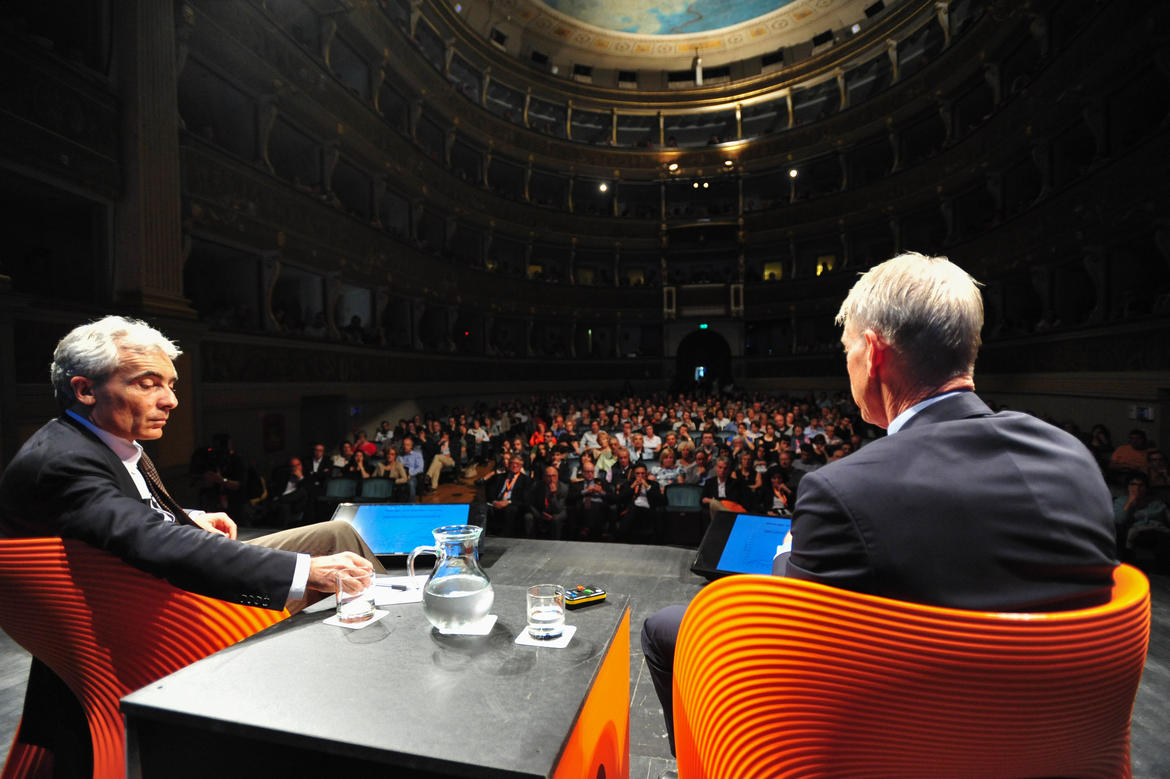
“Starting form 2008, when the crisis begins – explains Spence – world economy lost some 60 trillion US$. It does not mean that each country suffered the same way”. According to Spence, US are growing just by a rate 2%, Europe even less. China is lowering its very high growth rate from 10% to 6%. Indian is doing good. Brasil, after a period of consistent growth, is now in a dangerous situation. “Global economic situation seems steady – adds Spence – but not absolutely sustainable in a long run period. Yet, restarting world economic growth in such a scenario it is not easy at all”.
Concerning financial and monetary policies, Boeri asks Spence his opinion. “We (all of us, from US to Europe) are putting too confidence in central bankers, giving relevance just to monetary policies – argues Spence – but are the same monetary policies who produced very low interest rate, low inflation and sometimes deflation. In such a situation, capital goes to the quest of most remunerative markets. Finally, it seems that even the “orthodoxy” of international finance system, read IMF and WB, has somehow disappeared”.
To the Boeri question if technology could be the “panacea” taking care of suffering world economy, Spence replies: “Technology is often seen as job-destroying, not only in developed countries but also in emerging economies, but it is a main trend that cannot be stopped. There is no doubt that hi-tech, artificial intelligence, robotics will expand more and more their field of application and it is not unlikely in a near future to see a completely robotized factory”. In order to give some example of his statement, Spence plays a couple of clip showing a 3-D printing able to build shoes (an Adidas application who risk to destroy thousands of jobs in traditional shoe-makers countries) and a completely robotised warehouse at Amazon.
With relation to Europe, Boeri stimulates Spence on a couple of questions. What about the hypothesis – emerged during the Festival – of an European Finance Minister? What effects Brexit could have within EU? And Italy, has a chance to recover and restart its economy?. “In Europe an higher internal cohesion is needed – outlines Spence - , in order to achieve a full mobility of productive factors within EU, as it happens in the US. An European Finance Minister I think it is a good idea, anyway it is a process who takes time. In the meanwhile I guess transition would not be painless, even if with substantial differences for each European country. Yet, Brexit is a main issue today but even if in the UK would win “leave”, such a result may produce a re-thinking of European governance, and that could be a positive consequence too. Concerning Italy, it should absolutely stop brains escaping abroad, they are main and most important resources a country could have. Finally, let me tell a thought on refugees: in TV I often watch Italian Coast Guard and Navy rescuing people form the sea, well, I think Italy should be very proud of what is doing”.
Web: http://2016.festivaleconomia.eu
Twitter: @economicsfest
Facebook: https://www.facebook.com/festivaleconomiatrento








